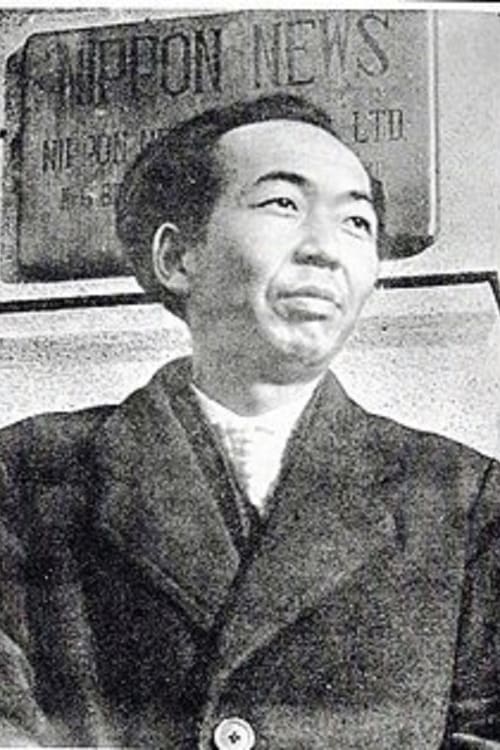
Satsuo Yamamoto
出生 : 1910-07-15, Kagoshima, Japan
死亡 : 1983-08-11
略歴
From Wikipedia, the free encyclopedia.
Satsuo Yamamoto (July 15, 1910 - August 11, 1983) was a Japanese film director.
Yamamoto was born in Kagoshima Prefecture on July 15, 1910. He dropped out of Waseda University to join Shochiku, where he worked as an assistant director to Mikio Naruse and others. He followed Naruse when he moved to PCL, and became a director in his own right after the company was reborn as Toho. During WWII he directed several pro-war propaganda films for them despite being a fervent member of the Japanese Communist Party (JCP), and after the war he rallied against the company as a driving force behind the union during the 1948 Toho labour dispute (in which the JCP was heavily involved), after which was ultimately fired.
He subsequently worked on independent films and made numerous intensely rebellious and substantial socially conscious works. From the 1960s onward, he directed a succession of major films including the Toyoko Yamasaki adaptations “The Ivory Tower” and “The Perfect Family”, the “Men and War” trilogy, and “Kotei no inai Hachigatsu”. This body of epic works led to him being dubbed “the Red Cecil B. DeMille”.
Three of his films, Shiroi Kyotō, Fumō Chitai and Ah! Nomugi Toge won the Mainichi Film Award for Best Film.
He died of pancreatic cancer on August 11, 1983 at the age of 73.
Description above from the Wikipedia article Satsuo Yamamoto, licensed under CC-BY-SA, full list of contributors on Wikipedia.

Director
The story of the silk industry and the young girls who worked as silk spinners in the early 1900s in Japan. The silk mills were located in Okaya which lies just beyond the Nomugi Pass. The women and girls worked in a hot, humid atmosphere without rest, and endured those conditions and sexual harassment to earn money for their poor families. Across the ocean, it was the great depression in America.

Screenplay
岩手で不審なトラックを追跡したパトカーが銃撃される事件が発生。陸上自衛隊の警務部長・江見は、内閣調査室の利倉とともに捜査を進め、一部の自衛隊員によるクーデター計画《皇帝のいない八月》の存在を知る。同じころ、かつて江見の部下だった藤崎はクーデターに加わる一部隊を率い、博多発東京行きの特急さくら号を乗っ取る。だが政府による鎮圧作戦が始まり、藤崎の隊は孤立。藤崎は最後の手段で乗客たちを殺すと脅す。

Director
岩手で不審なトラックを追跡したパトカーが銃撃される事件が発生。陸上自衛隊の警務部長・江見は、内閣調査室の利倉とともに捜査を進め、一部の自衛隊員によるクーデター計画《皇帝のいない八月》の存在を知る。同じころ、かつて江見の部下だった藤崎はクーデターに加わる一部隊を率い、博多発東京行きの特急さくら号を乗っ取る。だが政府による鎮圧作戦が始まり、藤崎の隊は孤立。藤崎は最後の手段で乗客たちを殺すと脅す。

Director
世界で初めて農民を組織したといわれる大原幽学を主人公に、笹川繁蔵、平手造酒、飯岡助五郎など浪曲でお馴じみの「天保水滸伝」をからませて、その時代に生きた人間群像を描く。脚本は「わが青春のとき」の山内久、監督は「不毛地帯」の山本薩夫、撮影は「君よ憤怒の河を渉れ」の小林節雄がそれぞれ担当。

Director
二次防の主力戦闘機選定をめぐり暗躍する商社とそれらと癒着する政財界の暗部を描いた山崎豊子の同名小説を映画化した社会派ドラマ。近畿商事は、総予算一兆円を越すとも言われる二次防主力戦闘機選定をめぐって、他商社との血みどろの攻防を繰り広げていた。やがて、その攻防は当然のように政界への“実弾”攻撃合戦へと発展していく。
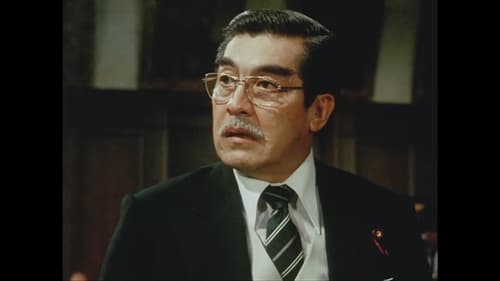
Director
昭和39年夏、与党・民政党の総裁選挙が行なわれ、現総裁にして内閣総理大臣の寺田政臣と最大派閥の領袖・酒井和明の一騎討ちとなった。数で劣る寺田総理が率いる寺田派は党内切っての実力者で副総理・広野大悟の派閥と協調して必勝を図った。その段階において両陣営とも票集めに10億円以上の実弾を投入した。中には広野派の神谷直吉代議士のように両陣営からちゃっかり戴く者もいた。激烈な選挙は僅差で寺田の三選で幕を閉じた。 それから数日後、金融業を営む石原参吉の元に内閣官房の西尾貞一郎が訪れ、星野康雄官房長官(寺田派)の名刺を持参したうえで秘密裏に資金を用立てて欲しいと告げる。ところが石原はこの申し出を断るものの星野の名刺を持ち去る。金融王として裏の世界を渡り歩いた石原は直感的に星野の周辺に何らかの疑惑があることを思いつき、星野の周辺を洗い出し始めた。その過程で寺田総理の郷里・九州の福流川ダム建設を目論む竹田建設と発注元の電力開発株式会社(小説では電力建設株式会社)若松圭吉副総裁の一派の談合と汚職の存在が浮かび上がる。

Director
大富豪の銀行家一族を中心に、政財界にまたがる富と権力をめぐる人間の野望と愛憎を描く社会派ドラマ。山崎豊子の同名小説を山本薩夫監督が映画化した超大作。阪神銀行の頭取・万俵大介。関西財界にその名をとどろかせる万俵一族は、子息を次々と政財界の大物と結婚させ、その勢力を広げ、磐石なものとしていた。そうした工作は、華族出身の世間知らずな妻・寧子ではなく、永らく家庭教師兼執事を務める高須相子の手腕によっていた。だが、一族の歯車は徐々に狂い始める……。

Director
Final part of epic drama about war and its effects upon human beings, follows the fortunes of the Godai family through the Sino-Japanese War through the Soviet Union's sudden attack upon Japanese troops at the end of the war.

Director
Second part of an epic drama of war and its effects upon human beings, follows the fortunes of the Godai family from 1935 through Japan's invasion of China. Based on the novels by Jumpei Gomikawa, who also penned The Human Condition.

Director
Keisuke Godai, head of the upstart Godai family conglomerate, plans to strengthen ties with the hardliners in the Kwantung Army as they plan military expansion into Manchuria.

Director
BLOOD END is one of the great unknown films from Japan's golden era of the late 1960's. Starring NAKADAI Tatsuya in one of his best roles, this is the story of the Mito Tengu Group who attempted to overthrow the Shogunate at the beginning of the Bakumatsu Period. Their political aspirations led to countless assassinations, as well as senseless killing of innocent people who got in their way. Sentaro (NAKADAI), a farmer who's been severely beaten for his outspoken defiance of the government and the high taxes during a time of famine is befriended by one of the group's leaders, KADA Gentaro (KATO Go) and joins up. This is the masterpiece of director YAMAMOTO Satsuo (who is best known for the first film in the NINJA, BAND OF ASSASSINS series) the erstwhile 'Leftist' director, who used his films to make his political points. Stunning fight choreography, and ultra-violence make this one of the bloodiest films of that era. A powerful film Rare classic!

Editor
Captures the optimistic attitude and entrepreneurial spirit characteristic of the Vietnamese people, who remain positive despite ever-present reminders of the horros of the Vietnam War.

Director
Captures the optimistic attitude and entrepreneurial spirit characteristic of the Vietnamese people, who remain positive despite ever-present reminders of the horros of the Vietnam War.

Director
On the night of the summer Obon festival, Hagiwara Shinzaburo meets a beautiful courtesan named Otsuyu. Not knowing she's a ghost, he becomes infatuated by her.
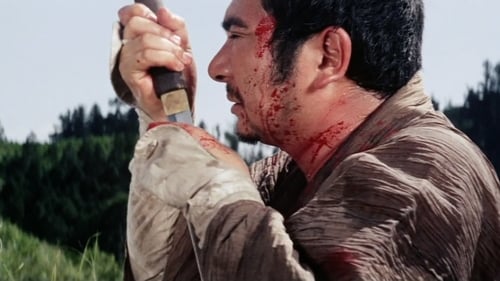
Director
When a local gambling house kidnaps some peasants because they failed to pay their debts, a rival gambling house pays their debts and sets them free.
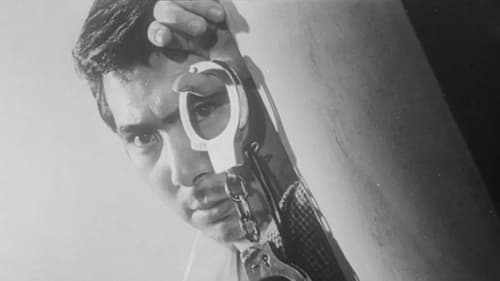
Director
Toramatsu is a very enthusiastic policeman. Believing that the police should help others he is dismissed the force when his pistol is stolen while doing one of his good deeds. He saves a child from drowning, restores it to his mother, then finds that someone has run off with his gun and later uses it to kill. Then he breaks up a group of hoodlums attacking a young girl named Mieko, and the police, his former friends, deciding he has gone too far, decide to sue him. On top of this the girl gets hurt and, consequently, a child from the kindergarten where Mieko teaches is kidnapped on his way home. Impersonating a policeman he tracks down the gangsters and rescues the boy. Due to this he also uncovers a scandal which allows the police to make a long due clean up in the political world. As a reward for all of this he wins the regard of the girl but now faces a stiff prison sentence for impersonating the policeman he had been and which, at heart, he truly remains.
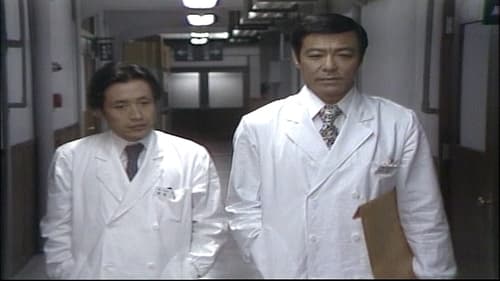
Director
誤診という名の殺人! 人の命を救うはずのメスが、野望のためにみがかれる! 医学界の封建的な人間関係、派閥抗争などを、野望に燃える浪速大学医学部第一外科助教授、財前五郎を中心に描く。

Director
Keizo Tsujiguchi believes his wife Natsue was having an extramarital affair when their child was kidnapped and killed. He believes of her extramarital affair she was unable to watch over their child properly and blames her for their daughter's death. To exact revenge on his wife, he then adopts the killer's child without telling the truth to his wife or their newly adopted child.

Director
Based on true events surrounding a Korean student who had entered Japan unlawfully and escaped illegal alien internment.

Director
Murder case and trial.

Director
Gisuke Hayashida is an illegal dentist during the day and a burglar by night. One night during a burglary he witnesses a train derailment. Some communists are found guilty of causing the incident, but he knows it wasn't them. He can save innocent people but for that he must confess his own crime.

Director
The intense selfishness of a man brings him fame and fortune but not happiness.
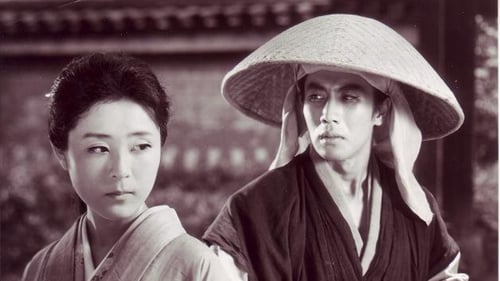
Director
[Period covered: 1582-1594]. As the film opens, the warlod Nobunaga Oda rides to Iga Ayanokuni shrine. He is asked if he thinks he has destroyed all the ninja who opposed him and answers that he suspects that there may be more. A servant brings water and tests it first. The paige dies and we hear gunshots as two ninja flee the scene. His suspicions confirmed, Nobunaga oversees the execution of captured ninja and decides that, in the future, he needs a much crueler method of execution. The daimyo Hideyoshi comes to visit.
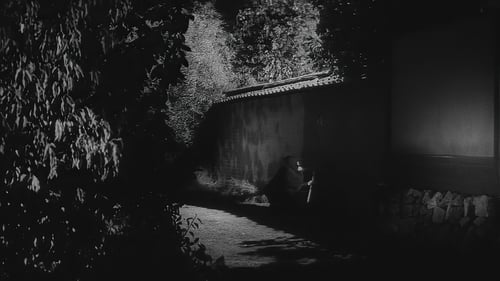
Director
Warlord Oda Nobunaga seeks to unite a fractured Japan. A young man trained in the arts of ninjitsu is manipulated by a ninja master into attempting to assassinate the warlord before he completes his task.

Director
Japanese drama.

Director
Satsuo Yamamoto's filmic depiction of the famous 1949 Matsukawa Incident.

Director
It's a story of the life of a man who advocated the necessity of sex education to children, which was unusual at the time, solely opposed to the amendment of the Peace Preservation Law, and was assassinated by a rightist prior to his opposition speech.

Director
Drama which shows the struggle of Fumiko, a female teacher, at work and at home.

Director
A lifetime story of a woman who stubbornly lives in a poor mountain village in post-war Japan.

Director
The humorous tale of Jimbei, a miller, and his wife Osen who live in complete happiness. But Osen's beauty attracts numerous would-be lovers among whom is the local governor, a timid creature, who is dominated by his high-born and beautiful wife, who dresses in a scarlet battle-tunic, a sign of his family's military merit around which he fabricates fantastic tales of his prowess in war. During the traditional festival when the villagers are released from observance of all social customs and restrictions, it is permissible for any man to attempt win the favors of the one he loves. However, the timid but romantic governor goes to the length of having the miller arrested to clear the way for his seduction of Osen. But Osen fights off his advances with an old hunting gun and dashes out of the mill. Jimbei, meanwhile, has escaped from jail and dashes home to finds the governor in his bed. Convinced that his wife has been violated, he decides to take an eye for an eye.

Director
Shochiku Production on typhoon

Director
"A unique left-wing comedy by Yamamoto.... A travelling theater troupe, led by Umagoro Ichikawa, comes to play in a mining town, and manages to sell every seat. Before the play begins, however, a miners' strike is announced, creating an uproar. In addition, the players find they have been cheated out of their profits by a crooked impresario. The socially naive actors join together with the progressive union members to create a political 'strike drama,' and learn much from each other in the process." --Alan Poul, Japan Society

Director

Director

Director
Based on Philippines war experiences. Military doctor Leutenant Hanada deserts with a local girl. The officer in command orders Lieutenant Uji to shoot Hanada. Uji takes a sharpshooter called Takagi and tracks him. At first Uji cannot forgive Hanada but as Uji is isolated from the main force he too starts to think of desertion.

Director
士官の財布を盗んだとして、木谷は陸軍刑務所に二年間服役。出所した木谷は軍の内務班に復帰した。班の内部では班長をはじめ古参兵たちが、初年兵をいじめていた。特に一等兵の會田は大学出ということもあり、日常的に暴力を受けていた。しかし木谷だけはそんないじめには加担していなかった。會田は木谷に好意を寄せ親しくなるが、木谷が野戦送りの人員に選ばれることを知ってしまう。木谷が刑務所へ送られたのも、野戦送りの人員に選ばれたのも、すべては派閥争いによるものだった。

Director
A period film about a peasant revolt in the region near Mount Fuji, occasioned by high officials' depriving the farmers of their water rights.

Screenplay
A period film about a peasant revolt in the region near Mount Fuji, occasioned by high officials' depriving the farmers of their water rights.

Director
An attempt is made to suppress a journalist's investigation of collusion between a rural police chief and the local gangster bosses.
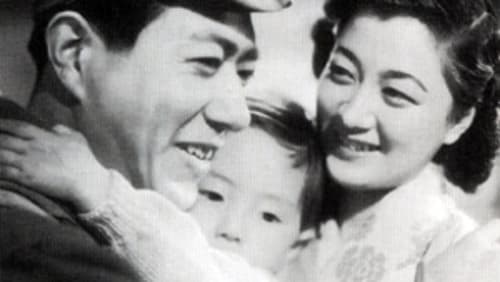
Director

Director
Set in wartime at the Yawata Steel Works in Tobata, Yawata, and Kokura cities in Fukuoka Prefecture, the film depicts people taking on the evil blast furnaces that prevent increased production. The film was shot on location at the actual Yawata Steel Works for an extended period of time, and special effects were created using a miniature blast furnace that closely reproduces the actual one.

Director

Director
9th directorial work by Yamamoto Satsuo.

Director

Screenplay
亡くなった父親の財産を母子が食いつぶし、唯一の頼りは叔父の株投資。しかしその叔父も相場で失敗して、追い詰められるが、末っ子の娘以外は現実を見ようとしない。

Director
亡くなった父親の財産を母子が食いつぶし、唯一の頼りは叔父の株投資。しかしその叔父も相場で失敗して、追い詰められるが、末っ子の娘以外は現実を見ようとしない。

Director
A priest in Hokkaido adopts a blind orphan girl, and as she grows up he finds himself falling in love with her.

Director
The prewar film Haha no kyoku (Mother's Melody, 1937) is known for its place in Japanese film history as one of the top three melodramas as well as for its authorship: Yamamoto Satsuo is an auteur not usually associated with filming melodramas. Yamamoto made the film right after he moved, along with his mentor Naruse Mikio, to the Toho film company. A number of subsequent postwar mother's films adopted some of its essences, making it a genre-defining moment in Japanese cinema. This great melodrama is atypical of Yamamoto's output, much of which deals with political corruption and inequities within social institutions and offers a strong anti-establishment appeal.
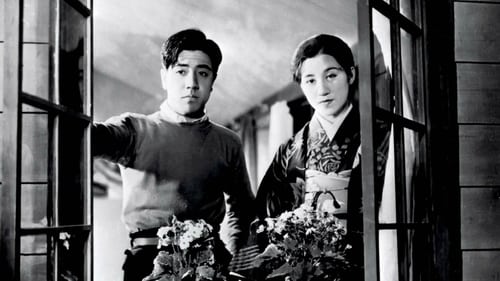
Assistant Director
Mikio Naruse’s final silent film is a gloriously rich portrait of a waitress, Sugiko, whose life, despite a host of male admirers and even some intrigued movie talent scouts, ends up taking a suffocatingly domestic turn after a wealthy businessman accidentally hits her with his car.

Director
The film is about a protest provoked when the university decided to restrict access to sports facilities to athletes, cutting out all other students. This is, strictly speaking, not a Prokino film. It was produced by the Waseda University Film Circle, which was organized by Kawazoe Shiro. Feature film directors Yamamoto Satsuo and Taniguchi Senkichi were apparently students at Waseda at the time and participated in the production.













